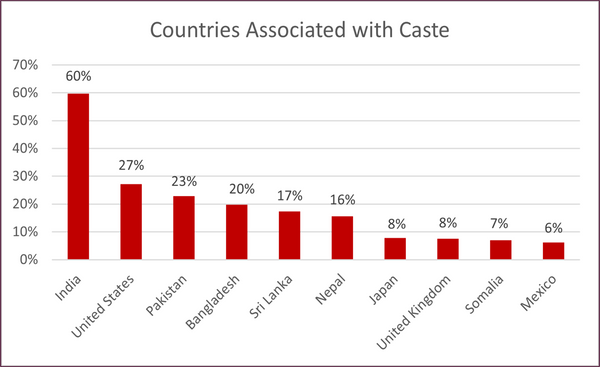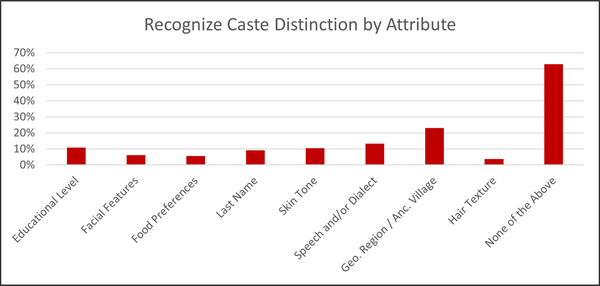California, May 23, 2023. How does an average American view caste? The question assumes significance in view of the passing of laws and measures taken by various universities, Seattle, and the State of California against caste-based discrimination. Any potential trial on caste discrimination would empanel a jury of ordinary Americans. Would they be able to reach a fair verdict or would they be biased about the origins and nature of caste? A recent survey, called “An American Understanding of ‘Caste’”, reveals how mainstream Americans view the issue and further confirm fears around California’s SB-403, which proposes to add caste as a protected category in the state’s anti-discrimination policies.
The survey data highlights important issues and deeply entrenched biases - most Americans associate caste with India (and therefore Hinduism) and believe that there are only four castes; nine out ten Americans had no idea how to tell someone’s caste based on markers such as last name, skin color, educational level, hair texture, etc.; their understanding of caste is already shaped by the time they graduate high school; and, social media and online platforms play a very important role in shaping the understanding and “experiences” of US-based Millennials.
“These findings are significant, since a trial or investigation around caste discrimination would empanel a jury of ordinary Americans or appoint them to conduct the investigation,” said Suresh Krishnamoorthy, Board Member of CoHNA. “Would they be able to identify castes by last names or other markers and reach a fair verdict? Or would they be biased about the origins and nature of caste, which can potentially result in racial profiling, targeting and stereotyping of South Asians and especially people of Indian and Hindu origin, along with government overreach?”
Coming after the 2021 Carnegie survey on Indian Americans, the data from CoHNA’s Caste Survey clearly demolishes popular claims that discrimination based on caste is ubiquitous in the United States or that Americans can easily identify the numerous castes and sub-castes based on markers such as last name, skin color, food habits, etc. This data is important in light of the claims from caste experts pushing such laws, that is it possible to identify/locate the “caste of a South Asian living in America through such markers.
Over the past two years, caste has been added as a protected category in a number of American universities, the city of Seattle and now under review in the State of California, without any cross verification of data supplied by private entities. The sole source of “data” cited has been the 2018 Equality Labs survey, even though the survey was called out as unscientific by the Carnegie Endowment (Footnote 29). The only other "evidence" cited has been a set of unproven allegations against employees at Cisco Systems by the California Civil Rights Department – a case that was recently withdrawn by the state.
The new survey data warns that community specific changes in any civil rights laws should only be taken up after due diligence and consultations with all stakeholders and experts.
The survey findings make it clear that there’s a need for a deeper, statistically valid study of the actual prevalence of caste-based systems of discrimination in America before any legislation or policy is passed. Passing laws and policies based on inaccurate or anecdotal information is unethical and can lead to violations of civil rights and the targeting and profiling of Hindu Americans and other micro minorities.
About the Survey - An American Understanding of ‘Caste’
The CoHNA survey was based on a YouGov US national sample of 1,500 responses. YouGov is an internationally recognized internet-based polling company that is widely used by major organizations, media houses, political analysts, and others to collect opinions on business, politics, public affairs, social trends, etc.
More details, graphs and the full survey results can be found here.


